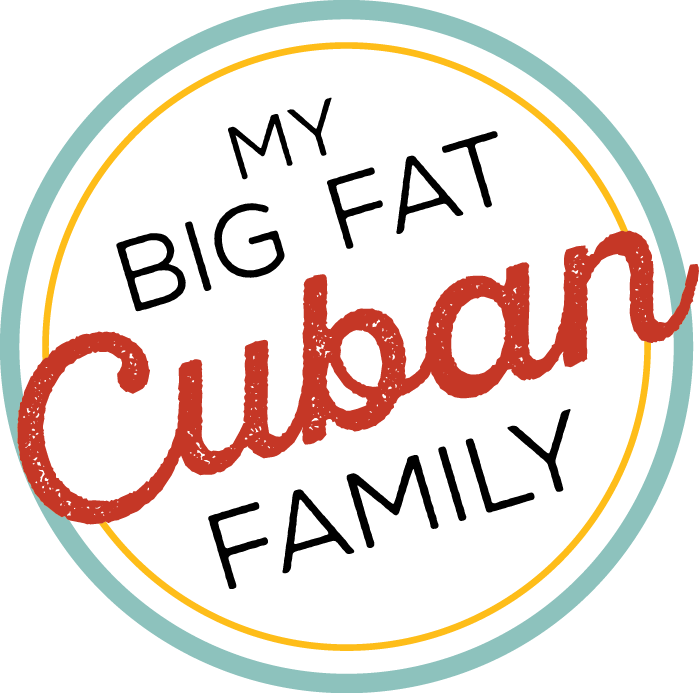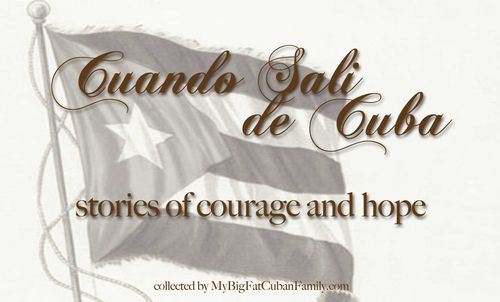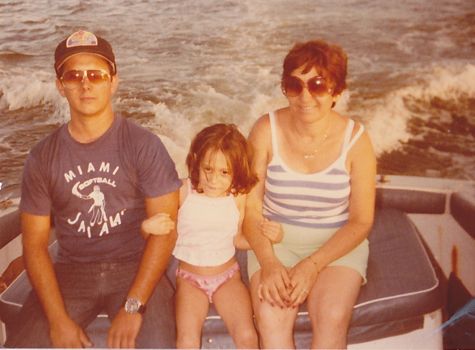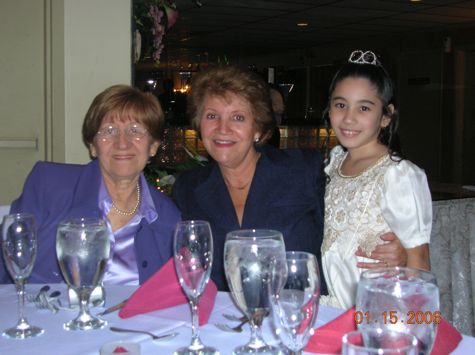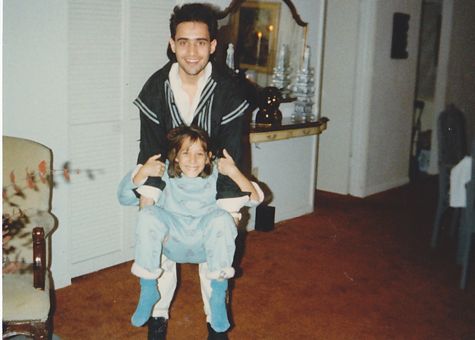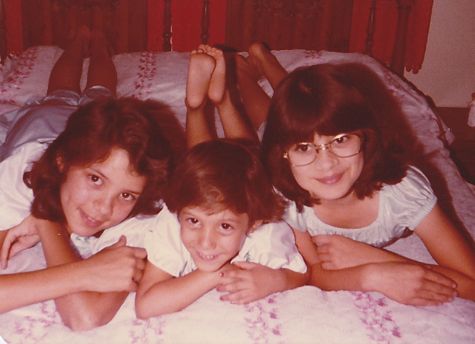Cuando Sali de Cuba - How We Became Marielitos - Gracie's Story
/Marta here: Welcome to my ongoing celebration of Hispanic Heritage Month: Cuban-Style with a series of stories about Cuban American families and how they ended up here in the U.S.:
Cuando Sali de Cuba, stories of courage and hope.
Today I want to introduce you to Gracie and her family, who left Cuba as part of the Mariel Boatlift in 1980. Gracie interviewed her family and pieced the story together according to all of their recollections.
There are two things I have noticed about the Cubans who came to America during the boatlift. Aside from the incredibly difficult conditions they endured at El Mosquito, the camp they were sent to while waiting for a ship to take them to America:
- They all vividly remember the names and types of boats that brought them to freedom.
- Their stories invariably include their amazement at the gracious treatment they received by the U.S. Military when they first arrived which cemented their love of this country.
125,000 Cubans came to the U.S. during this time. Most of them arrriving with nothing but the clothes on their backs. It's to their lasting credit that they've become, not just another historical footnote, but truly American success stories.
Here's Gracie's story.
How We Became Marielitos
I was 2 years old when my family and I left Cuba. Little did I know that my life was about to change as we boarded the Miss Mona Rose, an 80 foot long shrimp boat. We were among 280 Cubans who boarded that boat at 2am on September 3, 1980.
That was the day we left all of our possessions and everyone we knew behind. My family migrated to the U.S. during the Mariel Boatlift in 1980, along with approximately 150,000 other Cubans. During that time Castro had rid his country of what he considered to be “antisocial elements” including: gays, Jehovah Witnesses, non-political prisoners, and those who didn’t follow his communist regime. When boats went to Mariel to pick up other’s family members, he would add additional passengers that he no longer wanted in his country
The first of my family to leave Cuba were my brother Ruben, and my sister Miriam, who were 18 and 20 at the time. My father typed a letter stating my siblings were both gay and he then forged the signature of the revolutionary committee president.
Ruben and Miriam took the letter to the police station. The head of the police said that he needed their parent’s authorization to leave the country and proof that Ruben was released from military duty. He took them aside and said he knew our late grandmother and family well, and although he did not believe they were antisocial elements he would approve the leave from Cuba.
5 days later, a police officer went to our house and told them to report to the police station at midnight. A bus would pick them up to take them to Cuatro Ruedas, where antisocial elements or “Escorias” ("scum") as Fidel called them, were held while they were waiting to leave the country.
My brother and sister were at Cuatro Ruedas for one week without any outside contact. There, Miriam passed out one day from lack of food. Eventually, they were sent to El Mosquito, the final holding camp in Mariel. Prior to entering El Mosquito, the guards took their watches, jewelry, and other valuables. They took advantage of the situation in any way possible, including sexually harassing people. They asked my sister to bend over to search her, putting their hands in her pants as well as her underwear. Miriam vividly recalls one guard grabbing his genitals over his pants as he asked her, “So you don’t like this?” since her paperwork stated she was gay.
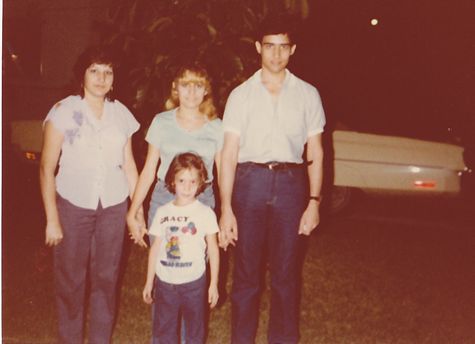
Miriam, Mireya, Ruben and Gracie in Miami
Once word spread that my siblings were leaving, my parents were hassled by neighbors, co-workers, and friends for not following Castro’s regime. Our neighbors threw rocks at our house and yelled profanities at us. My father lost his job and wasn’t able to find another.
My aunt, Cristina, lived in Miami for over ten years at that time. She listened to the radio every night as they listed all the names of Cuban immigrants that had arrived to Key West. After two weeks of my mom not hearing from my siblings, on June 3, 1980, my aunt called with news that Ruben and Miriam arrived to Key West safely.
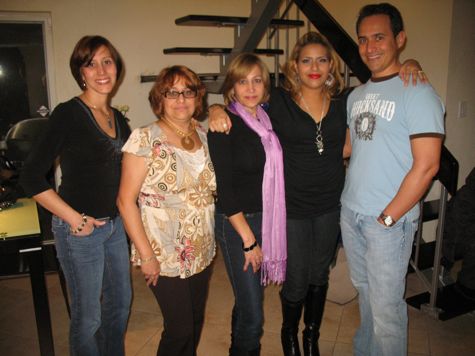
Gracie, Mireya, Miriam & her daughter, Diana, and Ruben 2009
The events that follow are the reason I am forever grateful to Ruben and my Tia Cristina. Ruben was willing to risk his freedom and life at the age of 18 to ensure the rest of us could leave the country. Tia Cristina and her husband fronted over $10,000 for us to come to the U.S, over $30,000 in today’s standards.
During the next two months, Tia Cristina paid two individuals on separate occasions, $1,500 for each family member that she wanted brought back from Cuba. First, she paid a man who promised to pick up the family in Cuba within 15 days. After a month passed without him leaving to Cuba, a number of disregarded phone calls and house visits from my aunt, Miriam and Tia Cristina spent one night in Tia’s car watching his house. Their persistence paid off and they were able to get the money back.
Mami, Tia Cristina, & Gracie's daughter, Ruby
My aunt later found a man named Jim; an American who was picking up other families. We were desperate at that point, as the Port of Mariel had been open for several months and everyone feared Castro would soon close the port. Ruben then decided he would return to Cuba to pick us up with Jim, who did not speak Spanish and my brother knew little English. He went for two reasons: to make sure the man would keep his end of the bargain and to ensure our family would go on the boat first, rather than those chosen by the Cuban officials.
Ruben returned to Cuba the 2nd week of July. Since he could not legally leave the United States, once they reached Key West, Ruben hid under mattresses in the van he traveled in. That evening, he snuck into the boat and they sailed off. Once they arrived in Cuba, my brother risked imprisonment and his life the moment he dared to touch Cuban soil. A line of boats awaited them when they reached Mariel with others who had gotten there prior to them.
Ruben lived in the boat for seven weeks. That is how long it took them to reach the front of the line and have the paperwork completed for the rest of the family to leave Cuba. He slept on a comforter on the floor and ate canned food that he had brought to survive during those several weeks.
We boarded the boat September 3rd. We left Cuba with only the clothes we were wearing. The weather was not in our favor that day and when one of the boat’s stabilizers broke, water started to enter the boat as it rocked. I was seasick and vomiting. The women and children were told to go to the cabin. My brother says it was like a scene from the movie, The Perfect Storm. The waves were enormous. People were falling into the ocean and drowning. The crew members tied a number of passengers to a rope to keep them from falling, including my dad, Mireya (my other sister), and Ruben.
My father recalls a small boat, with 9 people, leaving Cuba just a few minutes ahead of us. Once we were in international waters, we lost sight of the boat, which had been traveling close to us. Our captain called for help and soon after, the American Coast Guard had two boats and a helicopter searching the waters. My dad says he’ll never forget how impressed he was with the Americans for their thorough search for people who weren’t from their own country. At that moment he said he knew we had made the right choice in risking everything to go to America.
Finally, September 3, 1980 at 7pm, we arrived in Key West. Along with me came my parents, Mireya, Tia Ana, and her two daughters Aniutka and Anabel. My brother was questioned after they realized he had left the U.S. illegally. He was told he had to go to court and explain why he left the country.
Aniutka, Gracie, and Anabel
One of the most fascinating things about putting this story together is how everyone has different memories of the same event. Luckily, I don’t remember our awful 15 hours at sea, how scared my mom was when Ruben and Miriam left without us, or the three month ordeal my family went through before we left Cuba.
This story is a collection of my family’s recollections of how we became Marielitos. Although, I will never forget where I came from, I am now proud to be an American and forever grateful to this country.
****************************************************
Marta here.
I'm so grateful to Gracie for sharing her family's ordinary courage and the difficulties they encountered. There are thousands of stories just like theirs that have not been told.
It's not too late to tell your story. Send me an email with "Cuando Sali de Cuba" in the subject line to mdarby(at)cox(dot)net. I will keep posting them as long as you keep sending them.
Thank you so much. Que Dios los bendiga.
